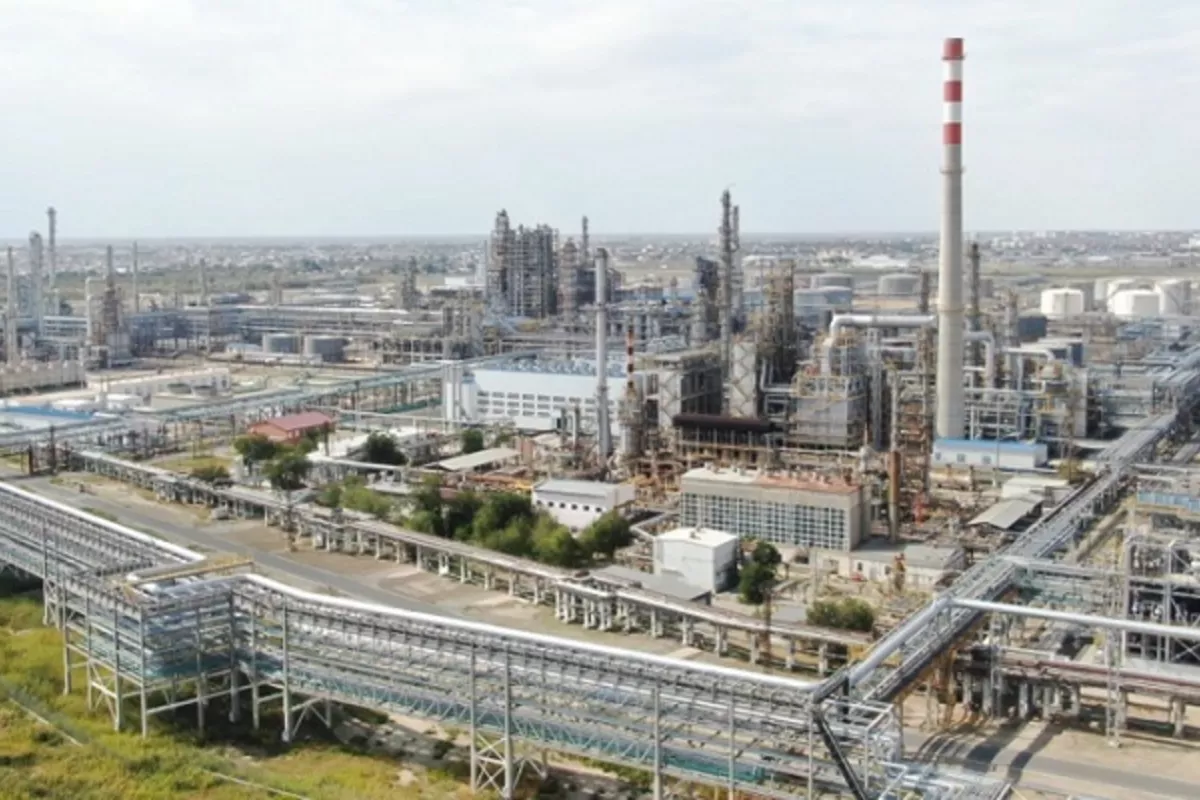
Photo: KMG
Kazakhstan’s Ministry of Energy has introduced an updated long-term strategy for the country's oil refining industry, outlining plans to increase refining capacity to 39 million tons annually by the year 2040.
To realize this ambitious target, the government estimates an investment requirement between $15 billion and $19 billion, The Caspian Post reports, citing The Times of Central Asia.
An earlier version of the Concept targeted a doubling of refining volumes from 18 million tons to 38 million tons by 2040. The updated version, presented during the Kazakhstan Energy Week 2025 forum in Astana by Talgat Makuov, Deputy Director of the Department of Oil Transportation and Refining, slightly increases that target.
“Expected investments in sector development, according to the Concept, range from $15 billion to $19 billion, enabling an increase in refining capacity from 18 to 39 million tons per year while significantly improving processing efficiency,” Makuov stated. He added that the document, aimed at enhancing Kazakhstan’s energy security, has been approved by the government and developed in coordination with state agencies and key players in the oil and gas sector.
“The Concept envisions expanding existing refineries and constructing high-tech, integrated petrochemical complexes with flexible product lines driven by market demand. These facilities will become long-term, high-value assets, increasing the capitalization of managing companies and attracting investors. They will also serve as the foundation for petrochemical clusters,” Makuov said.
Kazakhstan’s oil and gas chemistry sector is currently advancing in two main directions. The first is oil-based chemistry, such as benzene and paraxylene production at the Atyrau Oil Refinery (ANPZ), with potential for synthesizing more complex organic compounds. The second is gas-based chemistry, which includes the KPI polypropylene project, and planned projects for polyethylene and butadiene production.
“A key performance target of the Concept is improving the ratio of oil production to refining from 5:1 to 2.5:1, aligning with OECD benchmarks, supported by the introduction of new refining and petrochemical facilities,” Makuov explained. “Environmental standards and emission reductions are a priority, consistent with Kazakhstan’s decarbonization goals and green development agenda. Additionally, efforts are underway to establish applied research capabilities, including the creation of a dedicated R&D institute for oil refining and petrochemistry.”
Makuov emphasized that implementation of the Concept will support the sustainable development of the sector by balancing economic, environmental, and social objectives. It is expected to ensure domestic supply of high-quality petroleum products, increase export potential, particularly to fast-growing Asian markets, create new jobs, and improve the country’s investment appeal.
Earlier this year, Kazakhstan also announced a $15 billion investment in the oil and gas chemical sector through six major projects, aiming to transition from raw material exports to higher-value industrial production.
Share on social media